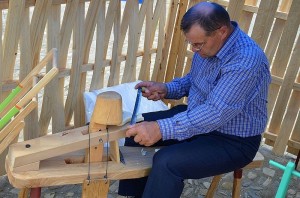Moral judgement is an everyday part of our experience, not a remote or ‘queer’ thing requiring extraordinary proof to be justified. There are a variety of types of moral principle that people draw on – for example, religious authority, utilitarianism, Kantian principle, or virtue ethics – and any and all of these can reflect our experience of moral demands. Yet none of these types of moral principle offers the whole story, and our judgements can always gain in objectivity by addressing conditions better, whichever type of principle may be drawn on to help us do this.
Middle Way Philosophy can offer a sceptical perspective on the claims of many ethical systems that are based on metaphysics. It can also offer the grounds of confidence that there is incremental objectivity in ethical judgements. If we keep trying to extend our awareness, and draw on a variety of approaches to ethics rather than only one, we can make moral progress in the judgements we make. This perspective can be asserted with confidence because it takes into account the uncertainty of ethics, not despite it. If we avoid false certainty either of a positive or of a negative type, we have much better grounds of confidence than we had either when we appealed to false certainty or when we merely lamented its loss.
It might help to explain this if we compare moral practice to a work of craft – say, a carpenter making a wooden chair. As the carpenter makes the chair, he will take a variety of tools out of his toolbox: a saw, a drill, a screwdriver, a chisel etc. Each of these helps to address the conditions required in creating a chair. He would not use a saw for making holes or a hammer for cutting a plank. In a similar way, as we go about our moral work of addressing conditions, we need to select the right tools from the toolbox to do that job in the way that best addresses those conditions. So, some judgements may require us to work out the likely consequences of an action and try to maximise the happiness that will result: for that we take out the utilitarianism tool. Other judgements may require us to become better people so that we have a better chance of making good judgements in future: for that we take out the virtue ethics tool. To assume that one of these tools can do all jobs is to adopt it as an absolute – metaphysical – principle rather than just as a present one that’s adapted to specific circumstances.
We can easily see the bad effects of relying solely on one kind of moral theory, rather than recognising the limitations of each one. If you believe uncritically that you should always obey (what you take to be) God’s will, for example, you may end up with holy wars. On the other hand, if you always rely on a utilitarian approach, and thus put all the faith on your capacity to make the right judgement based on the evidence currently available to you, you may end up with ecological and social disasters like the Three Gorges Dam in China.
Instead, we need to see the three major kinds of moral theory as reliant on each other. Consequentialism (such as utilitarianism), in which we work out outcomes of our actions, is dependent on mature judgement that recognises its own fallibility. We can develop better judgement through virtue ethics, which prioritises developing ourselves as people. However, this will become an end in itself unless it is challenged by an appeal to higher principles (deontology) or by consequentialism. Deontology, however, can be rigid and inflexible and neglect conditions that the rules do not take into account, so it requires the challenge of consequentialism to provide a wider perspective. Which tool we should select, then, depends not only on the outer circumstances, but also on what would stretch and challenge us to take more conditions into account.
The answers to questions like “How should I live?” or “How should I act?” can never be easy or absolute answers. Nevertheless, we should not mistake this complexity and uncertainty for an absence of answers. Nor are all proposed answers equally good, as relativists assume. The more we can find answers that fit a specific situation, and that are well-informed but aware of the fallibility of the model that they are using, the more confidence we can place in the moral justification of those answers.
Related pages: Judgement, Facts and Values, Objectivity
Picture: Carpenter at work by Silar (Wikimedia Commons)
